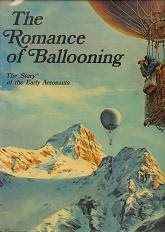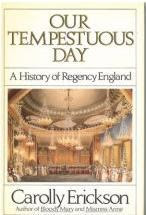Last week, in a new installment to the Cassie Edwards saga, Paul Tolme spoke out at Newsweek about the experience of having words from his Defenders of Wildlife article on black-footed ferrets used as dialogue in a romance novel. He’s clearly delighted that the resulting publicity has caused a spike in donations and ferret adoptions. However, he’s also upset some romance readers and writers by his use of terms like “trashy romance novel” and “standard romance-novel schlock”, for which he has since apologized.
It brings up the question of how much should we care when people mock the romance genre.
I certainly understand those who feel upset about it. Yet I can’t personally blame Paul Tolme. How could he resist such material? And he hasn’t exactly had a good introduction to the genre, has he? There are just too many people who share this view of romance (some of them even my relatives and friends). I just don’t have the energy to be angry with all of them.
What I do think is that too much righteous indignation can make us look foolish. Maybe we should just enjoy what we read and write and not worry about what people think.
But on the other hand, I’ve met too many women who might enjoy romance and won’t even try one, perhaps for fear of being thought foolish or frivolous. Especially if one of them admits to loving Jane Austen and/or the Brontes, I suspect there are romance novels that might appeal to her. If we managed to somehow tap into that market, it could lead to more sales of the sort of books I want to read and write.
So anyway, I do care and have always paid attention to advice coming through RWA and elsewhere on how to improve the image of the romance genre.
 Sometimes we are advised to quote statistics (the ones like romance accounts for 50% of mass market fiction sales). Some people will be impressed by the size of the business even if they don’t think they’d care for the product. On the other hand, that can be like telling people they should be impressed with McDonald’s food because of the X brazillion burgers sold.
Sometimes we are advised to quote statistics (the ones like romance accounts for 50% of mass market fiction sales). Some people will be impressed by the size of the business even if they don’t think they’d care for the product. On the other hand, that can be like telling people they should be impressed with McDonald’s food because of the X brazillion burgers sold.
The problem is I don’t really feel comfortable trying to defend the entire romance genre. Some books are pretty indefensible. The covers are sometimes cheesy. Sometimes the contents are, too. (There are also some pretty cheesy covers on some wonderful books and vice versa, but that’s a whole different blog post.) There is usually some truth to any stereotype.
Anyway, I don’t think indignation or a blanket endorsement of the genre are the right responses. If someone is rude (like the teen who walked up to me at a bookstore signing and said “Eeeewwww, romance!”) I smile and tell her she is entitled to her opinion. If someone is more polite and seems open-minded, I talk about the variety that exists within the romance genre.
I have occasionally tried to “convert” friends to romance. Not that that is the right word, actually. I wouldn’t want someone to try to convert me to reading horror, for instance. (Nothing against horror, I enjoyed the one Stephen King novel I read. But it’s just not my favorite flavor.) What I’d really like to do is to get more people to try romance.
 Last year, I got Julia Ross’s THE WICKED LOVER onto my book group’s reading list. I thought her use of language and her characterizations would appeal to them. However, most members didn’t read it. It could be in part because it was the December book and everyone was busy (no one read the previous December book either and we’ve since decided to skip the month). But I don’t know if it would have flown in any other month.
Last year, I got Julia Ross’s THE WICKED LOVER onto my book group’s reading list. I thought her use of language and her characterizations would appeal to them. However, most members didn’t read it. It could be in part because it was the December book and everyone was busy (no one read the previous December book either and we’ve since decided to skip the month). But I don’t know if it would have flown in any other month.
I’m at peace with that. I can’t change the world and I did get one member into romance. She started out with Julia Ross but has moved on to many new authors. I’m happy about that small gain and I’ll continue recommending good romance novels–especially those by the Riskies. 🙂
So how do you feel when people diss romance? Do you think it matters? What do you do about it?
Elena
www.elenagreene.com




